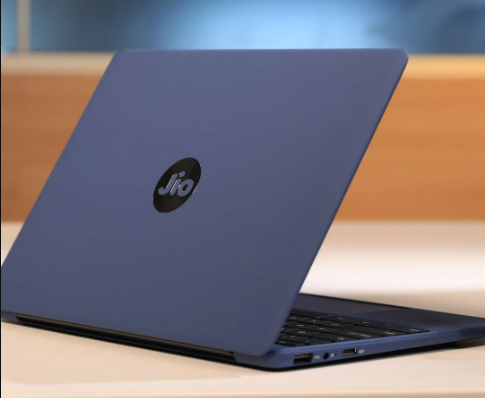
Google, the dominant search engine in the United States, is confronting its most significant legal challenge to date as it faces a civil trial in Washington over allegations of violating U.S. antitrust laws.
The case brought by the Justice Department focuses on Google’s search practices, specifically whether the company has employed unlawful agreements to sideline competitors, thereby harming both consumers and advertisers. Google has been accused of paying substantial sums to Apple, among others, to secure its position as the default search engine on the Safari browser.
Google, which is owned by Alphabet, emerged during an era marked by lax antitrust enforcement, especially within the technology sector. These tech companies introduced innovative, often free, ways to explore and utilize the internet. With legislative efforts to regulate technology giants failing to progress in Congress, the government is now turning to antitrust law to regulate competition on the internet and place restrictions on the gatekeepers of the web. Here are key questions about this pivotal U.S. antitrust trial, the most significant since the government challenged Microsoft over 20 years ago.
- Why is Google facing an antitrust lawsuit? The Justice Department and several states filed a lawsuit against Google three years ago, alleging that the company unlawfully maintains a monopoly in online search and related advertising markets. Google commands roughly 90% of the search market and is said to sustain its dominance through restrictive agreements with browser and phone partners like Apple, Mozilla, Samsung, and Verizon. The government contends that these agreements are illegal and make Google the default search engine on most U.S. phones. Additionally, Google’s deals with Android-based mobile device manufacturers prohibit the pre-installation or promotion of rival search engines if they opt to share in Google’s search revenue.
- What harm results from Google’s agreements? The Justice Department asserts that Google’s exclusive deals with Apple and others hinder rivals from effectively competing for search business or improving their products. Google’s lock on browsers and search queries, according to the government, prevents companies like Microsoft from conducting enough searches to enhance their offerings, giving Google an anticompetitive advantage in terms of scale. These agreements are also accused of stifling innovation, as Google has no incentive to improve its search engine to maintain market share. Moreover, Google’s monopoly is alleged to have led to increased advertising prices on its search results pages.
- How does Google defend its agreements? Google contends that its deals with Apple and other partners encourage competition by providing browser providers with what they desire: a single default search option for users. According to Google, Apple and Mozilla chose Google because it outperforms rival search engines, not because they were coerced through revenue sharing or other incentives. Google also points out that its agreements do not prevent its partners from offering alternative search engines, as users of Apple’s Safari or Mozilla’s Firefox browsers can change the default search option in their settings. On Android phones, Google maintains that consumers can independently switch from its preloaded search engine to other products, with Google attributing the low adoption of these alternatives to consumer preference for a superior product.
- What could happen if Google loses the lawsuit? While it’s theoretically possible for U.S. District Judge Amit Mehta to order the breakup of Google, legal analysts consider this outcome unlikely. More plausible scenarios involve imposing new restrictions on Google’s business practices, such as the company’s ability to make payments to partners like Apple, Samsung, and others for being the default search engine on their devices. Paul Gallant, a tech-policy analyst at Cowen Washington Research Group, has suggested that limiting these payments could be the most natural remedy. Breaking up the company over unlawful payments to equipment manufacturers is seen as less likely given the extent of harm involved.
- When was the last time the U.S. government challenged a major monopoly in court? The last major antitrust lawsuit brought by the government was against Microsoft in 1998. This lawsuit was centered on Microsoft’s efforts to control the market for internet browsers on Windows computers. The Justice Department ultimately prevailed in that case, which is credited with creating opportunities for rivals like Google and Facebook to thrive. The Justice Department argues that Google has adopted a similar playbook to Microsoft’s in the 1990s to establish and maintain its own monopoly in internet search and advertising, although Google contests the comparison.
- How long will the trial last, and when can a verdict be expected? The Justice Department has one month to present its case, which means that questioning of witnesses by both the states and Google will not occur until October. Witness testimonies are anticipated to conclude in November, after which both sides will submit briefs summarizing their arguments to the judge. Closing arguments and a final judgment are not expected until the following year. If Judge Mehta determines that Google violated the Sherman Antitrust Act, a separate trial to determine penalties would be scheduled. Given the likelihood of appeals, a final resolution may still be several years away.
- Who are the key witnesses in the trial? While a complete witness list is not yet available, it is expected that Alphabet Chief Executive Sundar Pichai and certain Apple executives, including Eddy Cue, senior vice president of services, will face questioning. The Justice Department is likely to call on executives from Microsoft and DuckDuckGo, which operate competing search engines.
- Who are the key lawyers involved in the case? Google’s principal trial attorney is John Schmidtlein, a partner at the prominent litigation firm Williams & Connolly. Schmidtlein previously represented a group of states in a portion of the 1998 trial against Microsoft. Google’s Chief Legal Officer Kent Walker and Susan Creighton, a partner at the Silicon Valley law firm Wilson Sonsini, have played









